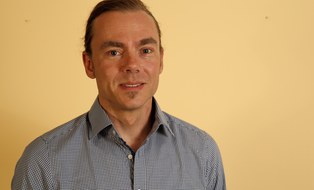iKarst: Characterization and modelling of multi-compartment karst systems using integrated interpretation of source signals
Funded by
DFG Research grant
Duration
2019 - 2024
Project description
Karst aquifer systems are heterogeneous hydrological systems with distinctive anisotropy. The characterisation of such systems is extremely challenging, since several processes are yet not fully understood. Classical approaches (i.e. combinations of methods considering specific aspects) are of limited applicability, as long as field investigations and their results are not complemented by appropriate comprehensive modelling concepts. Various tools for describing individual karst compartments (surface zone, vadose zone, and phreatic zone) already exist, however, integrated models considering all relevant processes by physically based approachesare still missing. Our preliminary work highlights similar challenges regarding a physically based modelling of karst features (input signal generation, conduit-matrix interaction, and conduit storage processes). Additionally, non-unique solutions of highly parameterisedmodels (model structure, parameters, and results) limit the application of complex numerical models. The separation of the entire karst system into individual compartments is used to enhance existing distributed-parameter models for a physically based and spatially distributed characterisation. This will lead to improved understanding of flow and transport processes. The tools are to be combined to an integrated modelling approach, which allows to identify model uncertainties through sophisticated inverse techniques (e.g. data weighting, objective functions). Forward modelling of idealised models allows to identify and quantify different input signal sources based on multiple spring signals (flow, heat, and solutes). The relevance of specific processes and parameters is evaluated by sensitivity analysis. Joint inversion of multiple signals is used to evaluate needed model complexity, depending on information and data availability. The stepwise adaption of model complexity reduces computational demands of highly parameterised complex karst system models. Model uncertainties are estimated via automatic inverse modelling tools. Concluding, this will allow to define future exploration demands and, therefore, foster karst system management.
Contact person
 © Thomas Krause TUD
© Thomas Krause TUD
Dr.-Ing. Thomas Reimann
Senior Scientist / Working group leader modeling
Send encrypted email via the SecureMail portal (for TUD external users only).
Visitors Adress:
Neubau Chemie, Room E58 Bergstr. 66
01069 Dresden
Deutschland
Office hours:
by appointment
